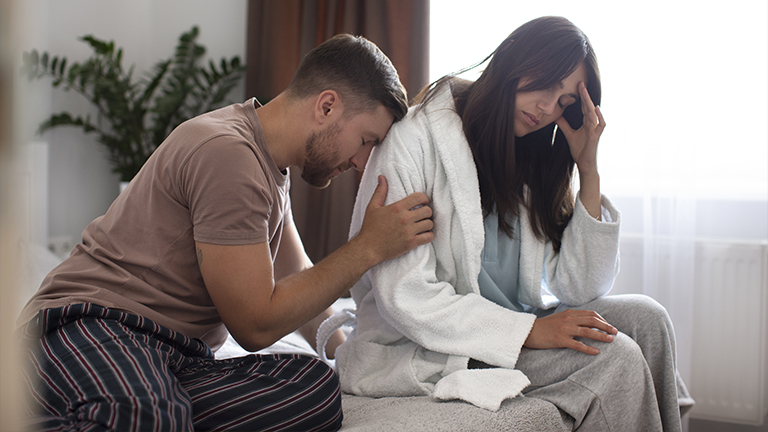Relationship anxiety is a common yet often misunderstood emotional struggle that affects many individuals in romantic partnerships. It involves persistent worry, fear, and self-doubt that can strain even the healthiest relationships. Whether you constantly question your partner’s love, fear abandonment, or overanalyze every interaction, relationship anxiety can take a toll on your emotional well-being.
In this comprehensive guide, we’ll explore:
- The definition of relationship anxiety and how it differs from normal relationship concerns
- Common signs and symptoms of relationship anxiety
- Root causes, including attachment styles and past traumas
- How relationship anxiety impacts partnerships
- Effective strategies to overcome emotional insecurity
- When to seek professional help
- The difference between healthy and unhealthy relationship anxiety
1. What is Relationship Anxiety?
Definition and Overview
Relationship anxiety refers to excessive fear, doubt, and insecurity in a romantic relationship. Unlike occasional worries, it involves persistent overthinking, fear of abandonment, and emotional distress that can interfere with daily life.
People with relationship anxiety often:
- Doubt their partner’s feelings despite reassurance
- Fear being cheated on or abandoned
- Overanalyze texts, conversations, and behaviors
- Struggle with trust and emotional intimacy
Difference Between Normal Worry and Relationship Anxiety
It’s normal to have occasional doubts in a relationship, but relationship anxiety is chronic and overwhelming.
Normal Worry:
- Temporary concerns (e.g., “Did I upset my partner?”)
- Resolves with communication
- Doesn’t disrupt daily functioning
Relationship Anxiety:
- Constant fear of rejection or betrayal
- Excessive need for reassurance
- Leads to self-sabotage or emotional exhaustion
2. Common Signs of Relationship Anxiety
Recognizing the symptoms is the first step toward managing relationship anxiety.
Overthinking Small Issues
- Reading too much into minor interactions (e.g., a delayed text response)
- Assuming the worst-case scenario (“They’re losing interest”)
Fear of Abandonment
- Panic when a partner is distant
- Clinging behavior to avoid separation
Constant Need for Reassurance
- Frequently asking, “Do you still love me?”
- Seeking validation to ease doubts
Jealousy and Trust Issues
- Feeling threatened by friendships or ex-partners
- Accusing a partner of infidelity without evidence
Self-Sabotaging Behaviors
- Pushing a partner away to test their loyalty
- Avoiding commitment due to fear of rejection
3. Root Causes of Relationship Anxiety
Understanding the underlying causes can help in addressing emotional insecurity.
Past Traumas or Heartbreaks
- Previous betrayals or toxic relationships create lingering fear
- Childhood abandonment issues affecting adult relationships
Anxious Attachment Style
- Developed in childhood due to inconsistent caregiving
- Leads to clinginess and fear of rejection in adulthood
Low Self-Esteem
- Feeling unworthy of love
- Believing a partner will leave for someone “better”
Unhealthy Relationship Models
- Growing up with dysfunctional relationships shapes negative expectations
- Lack of healthy conflict resolution examples
4. How Relationship Anxiety Affects Partnerships
Unmanaged anxiety can damage relationships in multiple ways.
Communication Breakdowns
- Avoidance of difficult conversations
- Misinterpreting neutral comments as rejection
Self-Sabotaging Behaviors
- Picking fights to test a partner’s commitment
- Withdrawing emotionally to protect oneself
Emotional Exhaustion for Both Partners
- The anxious partner feels drained by constant worry
- The other partner may feel pressured or frustrated
5. How to Overcome Relationship Anxiety
Practice Self-Awareness & Mindfulness
- Identify triggers and irrational thoughts
- Use grounding techniques to stay present
Improve Communication with Your Partner
- Express needs without accusations (e.g., “I feel anxious when…”)
- Set healthy boundaries
Seek Therapy (CBT, Couples Counseling)
- Cognitive Behavioral Therapy (CBT) helps reframe negative thoughts
- Couples therapy improves trust and communication
Build Self-Confidence & Trust
- Engage in self-care and personal growth
- Challenge negative self-talk
6. When to Seek Professional Help
Consider therapy if:
- Anxiety disrupts work, sleep, or daily life
- You experience relationship OCD (obsessive doubts)
- Self-help strategies aren’t enough
Therapy Options
- Individual Therapy: Addresses personal insecurities
- Couples Counseling: Improves relationship dynamics
7. Healthy vs. Unhealthy Relationship Anxiety
Normal Doubts vs. Chronic Anxiety
Healthy:
- Occasional concerns that resolve with communication
- Motivated by genuine red flags
Unhealthy:
- Persistent fear despite no evidence of problems
- Leads to controlling or destructive behaviors
Red Flags to Watch For
- Excessive jealousy or accusations
- Avoiding relationships altogether due to fear
- Emotional dependence on a partner for self-worth
Conclusion
Relationship anxiety is a challenging but manageable issue. By understanding its roots, recognizing symptoms, and implementing coping strategies, you can build healthier, more secure relationships. If anxiety feels overwhelming, professional support can make a significant difference.
Final Takeaways:
- Relationship anxiety involves excessive fear and doubt in partnerships.
- Common signs include overthinking, fear of abandonment, and jealousy.
- Root causes may include attachment styles, past trauma, or low self-esteem.
- Therapy, communication, and self-care can help overcome anxiety.
- Seek professional help if anxiety disrupts your life.
By addressing relationship anxiety proactively, you can foster deeper trust, emotional security, and lasting love.



